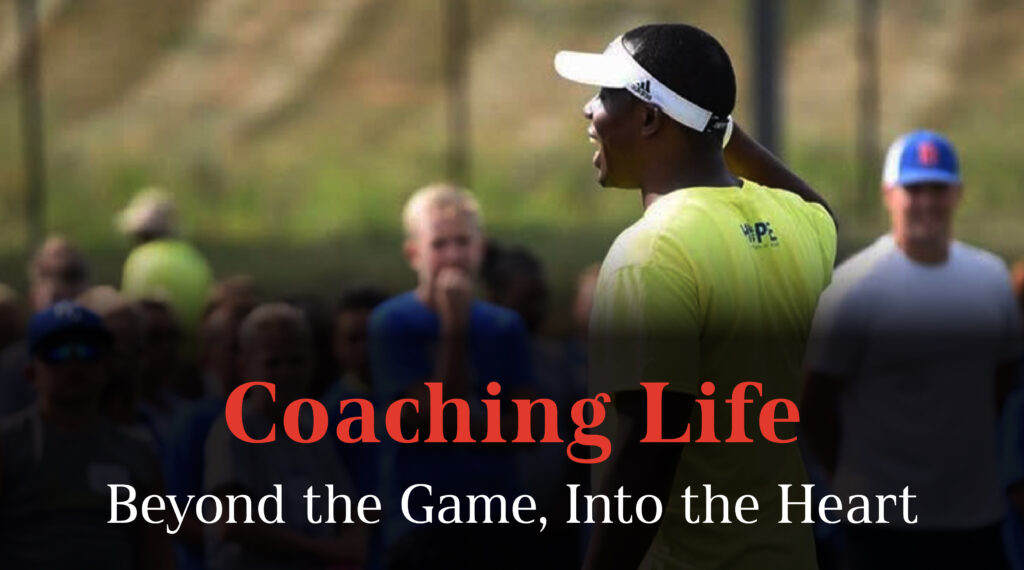In the high-stakes world of professional sports, where physical prowess and strategic acumen reign supreme, there exists a less tangible yet equally vital force that drives success: spirituality. For Kahlil Carter, a distinguished football coach and former professional athlete, faith is not merely a personal belief system—it is the bedrock upon which he has built a remarkable career and a lasting legacy. His journey through the gridiron, from player to coach, exemplifies how the integration of faith and football can cultivate resilience, purpose, and leadership, offering a compelling model for athletes, coaches, and professionals alike.
Kahlil Carter’s career is a testament to the transformative power of spirituality in sports. With an illustrious resume that spans the NFL, NFL Europe, Arena Football League (AFL), and Canadian Football League (CFL), Carter has consistently demonstrated excellence. As a player, he earned All-League honors four times, was named Defensive Player of the Year in 2003, and broke barriers as one of the first AF2 players to sign with an NFL team, the Buffalo Bills. His transition to coaching further solidified his impact, leading teams to back-to-back championships in 2011 and 2012, mentoring 21 All-League players, and earning accolades as a strategic mastermind. Yet, beyond the trophies and statistics, Carter attributes much of his success to a deep-seated faith that has guided him through adversity and triumph alike.
At the core of Carter’s philosophy is the belief that football is more than a game—it is a divine platform. In his book, The iN Crowd: Life, Legacy, Leadership, he articulates this conviction, stating, “I believe that football is God’s game.” For Carter, the sport embodies qualities such as honor, passion, and spirituality, which he sees as reflections of a higher purpose. This perspective is not merely philosophical; it is a practical framework that has shaped his approach to both playing and coaching. By viewing football as a sacred arena, Carter has harnessed its challenges and opportunities to foster personal growth and inspire those around him.
One of the most striking aspects of Kahlil Carter’s story is how faith provided him with strength during turbulent times. Growing up in gang-ridden neighborhoods in Little Rock, Arkansas, Carter faced significant obstacles—violence, poverty, and the absence of a consistent father figure. His mother, Linda, a single parent and his self-proclaimed hero, instilled in him a sense of resilience and optimism, often reinforced by spiritual teachings. This foundation proved invaluable as Carter navigated the complexities of his youth, eventually channeling his energy into football rather than the destructive paths that surrounded him. His ability to rise above these circumstances underscores a critical lesson: spirituality can serve as an anchor, offering stability and direction when external conditions threaten to overwhelm.
As a professional athlete, Carter’s faith continued to play a pivotal role. His playing career was marked by moments of profound personal significance, such as the game in Greensboro, North Carolina, in 2000, where he delivered a standout performance while grappling with the news of his father’s impending death. Reflecting on that night, Carter writes, “I felt unstoppable… as if my father’s spirit and essence were somehow transferring into me.” This intersection of faith and performance illustrates how spirituality can transcend the physical demands of sport, providing an emotional and mental boost that enhances on-field success. For Carter, it was a divine affirmation of his purpose, propelling him to new heights in his career.
Transitioning to coaching, Kahlil Carter brought this spiritual lens to his leadership style, emphasizing servant-leadership and mentorship. His tenure as Defensive Coordinator for the Montreal Alouettes and Secondary Coach for the Calgary Stampeders showcased his ability to blend tactical expertise with a genuine care for his players’ holistic development. Carter’s motto, SWAAG—Students Working toward Academic and Athletic Greatness, Serving a Wonderful and Amazing God, and How You Wear Your Confidence and Style—encapsulates this approach. The inclusion of “Serving a Wonderful and Amazing God” highlights his belief that faith is integral to achieving greatness, both individually and collectively.
Carter’s coaching philosophy is grounded in the understanding that football is a relational endeavor. He asserts, “The game of football is about relationships… the bonds formed with the individuals in the locker room that extend far beyond the field.” This principle, imparted by Coach Pinball Clemons during Carter’s time in Toronto, resonates deeply with his spiritual values. By fostering a team culture rooted in trust and mutual support, Carter has created environments where players thrive—not just as athletes, but as individuals with purpose. His work with the Fellowship of Christian Athletes (FCA) further amplifies this mission, using football as a vehicle to convey messages of faith and resilience to young athletes.
The connection between faith and football also manifests in Carter’s emphasis on accountability and humility. In The iN Crowd, he reflects on the importance of aligning one’s actions with spiritual principles, noting, “Whatever you do, do it to please God.” This mindset has guided his professional conduct, from maintaining professionalism under scrutiny to prioritizing family over career demands when necessary. For instance, Carter’s decision to step away from coaching to focus on his family in Des Moines, Iowa, reflects a recalibration of priorities informed by faith. This choice, while difficult, has yielded rewards—stronger family bonds, renewed spiritual growth, and a platform to serve his community in new ways.
For organizations and individuals in the sports industry, Kahlil Carter’s journey offers actionable insights. First, it underscores the value of integrating spirituality into leadership frameworks. In a field often dominated by metrics and outcomes, Carter demonstrates that faith can enhance emotional intelligence, foster team cohesion, and provide a moral compass. Second, his story highlights the importance of resilience—a quality bolstered by spiritual belief. Whether facing personal loss, racial adversity, or career setbacks, Carter’s faith-equipped him to persevere, a lesson applicable to any professional navigating uncertainty.
Moreover, Carter’s approach challenges the stereotype of the stoic, detached coach or athlete. By openly embracing spirituality, he has redefined strength as a blend of physical capability and inner fortitude. Gary Swenson, a veteran high school coach who worked with Carter, praises this quality, stating, “Kahlil carries a level of energy that is consistent… he will hold players accountable yet they know how much he cares for them.” This balance of discipline and empathy, rooted in faith, has made Carter a standout leader across multiple levels of football.
The broader implications of Carter’s philosophy extend beyond sports. In corporate settings, where burnout and disconnection are prevalent, integrating spirituality—whether through faith, purpose, or values—can rejuvenate teams and individuals. Carter’s emphasis on planning, as outlined in his three-year goal-setting strategy, complements this idea, offering a structured yet spiritually informed approach to success. His assertion, “In order to succeed in your plan, you must plan to succeed,” resonates as a call to intentionality, underpinned by a belief in a greater purpose. Kahlil Carter’s legacy is still unfolding, but his integration of faith and football has already left an indelible mark. From the streets of Little Rock to the sidelines of professional stadiums, he has shown that spirituality is not a peripheral element but an essential driver of strength and leadership. For aspiring athletes, coaches, and professionals, Carter’s example serves as a powerful reminder: true greatness emerges when faith and ambition align. As he continues to mentor and inspire, his story reaffirms that the connection between faith and football is not just essential—it is transformative.


